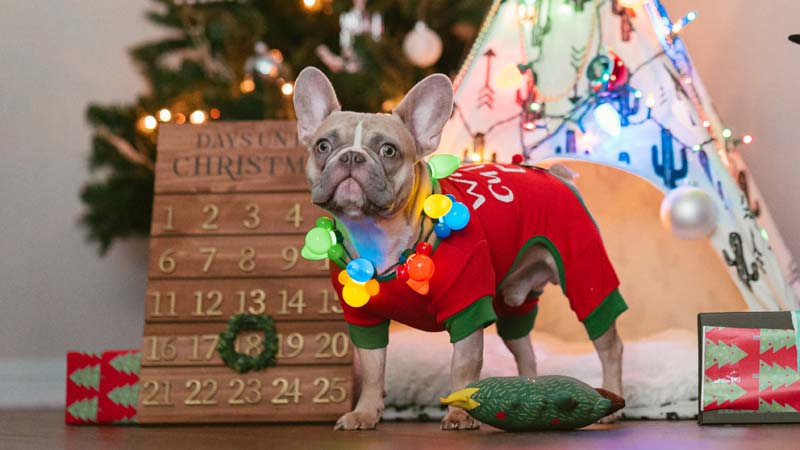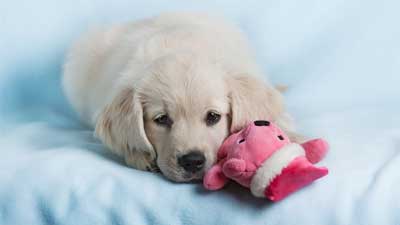- Size
- Smallest
- Small
- Small to Medium
- Medium
- Large
- Giant
- Characteristics
- Smartest
- Hypoallergenic
- Fluffy
- Best Guard
- Best Family
- Best for Kids
- Low Shedding
- Healthiest
- Police Dogs
- Most Calm
- Quietest
- Color
- White
- Black
- Grey
- Brown
- Blue
- Red
- Coat
- Hairless
- Short
- Long
- Origin
- Japan
- China
- Australia
- Germany
- Italy
- United States
- France
- Group
- Hound
- Terrier
- Herding
- Toy
- Working
- Sporting
Are Christmas Trees Pet-Safe? Exploring Potential Hazards for Cats and Dogs

Photo by Karsten Winegeart on Unsplash
Amidst the flurry of holiday preparations—choosing gifts, selecting the perfect tree, and crafting delectable treats—so, it's easy to lose sight of our furry friends. Household items reappear, tempting pets into mischief. Amidst the aroma of delicious meals and the glint of decorations, the Christmas tree takes center stage, bedecked in glimmering lights and ornaments, enticing cats and dogs alike.
However, while our attention may be on the festive decorations, it's crucial to consider the potential risks that these holiday staples pose to our pets. Are the pine needles toxic if chewed by your feline companion? Is the tree water harmful if your canine friend takes a sip? Let's explore the dangers Christmas trees might pose to cats and dogs, alongside other holiday decorations that could harbor toxicity issues for pets.
The Risks Associated With Christmas Trees
Many people decorate their trees with ribbons, tinsel, and ornaments for a spectacle that is attractive and festive. Unfortunately, this same aesthetic can be hazardous to our furry friends:
Live Trees: While fir, spruce, and pine trees are generally non-toxic to pets, their needles can cause oral irritation if ingested. Excessive amounts of needles can also lead to gastrointestinal issues. It's important to prevent your pets from chewing on the tree or consuming fallen needles.
Artificial Trees: Fake trees are free from oil and sap, but the materials used to make them can still cause gastrointestinal problems if ingested. Keep an eye on your pets to ensure they don't chew on or eat any parts of the artificial tree.
Fertilized Water: Adding fertilizer or preservatives to the water in the tree stand can help it last longer, but these chemicals can be harmful if ingested by your pets. Make sure the tree stand is securely covered or blocked off to prevent your pets from drinking the water.
Ornaments: Glass, clay, and ceramic ornaments can shatter if knocked down by your pets, potentially causing injuries to their paws. Be mindful of the types of ornaments you hang on the tree, and consider using safer alternatives or placing fragile ornaments higher up.
Lights: Though they may be captivating, light strands pose choking hazards and can lead to electrical burns if pets chew on them. Ensure that lights are securely fastened and out of reach of your pets.
Holiday Plant Toxicities
While many holiday plants can add cheer to your home, it's important to be aware of the potential dangers they pose to your pets. Here are a few tips to keep your furry friends safe:
Mistletoe: Mistletoe can cause gastrointestinal and cardiovascular issues in cats and dogs. Keep this plant out of reach of your pets or opt for artificial mistletoe instead.
Holly: The pointed leaves of holly can cause physical injury, and its berries and leaves are toxic to pets, causing vomiting, diarrhea, and salivation. Place holly out of reach of your pets, or use alternatives like artificial holly or other non-toxic plants.
Lilies: Cats are particularly sensitive to lilies and can experience kidney failure if they are exposed to pollen or ingest any part of the plant. Keep lilies out of your home if you have cats, and if you receive lilies as a gift, place them in an area your cat cannot access.
Amaryllis: The bulb of the amaryllis can cause oral irritation and gastrointestinal upset if ingested. Keep the plant out of reach or opt for artificial amaryllis instead.
Poinsettias: Contrary to popular belief, poinsettias are not highly toxic to pets. While they may cause some vomiting and salivation if ingested, most pets will avoid eating them due to the irritating taste and feel of the sap. Still, it's best to keep poinsettias out of reach to prevent any potential issues.
Plant Safety Measures
To safeguard pets during the holidays, it's essential to adopt preventive measures:
Strategic Placement: Position holiday plants out of reach and consider keeping them in inaccessible rooms to prevent pets from accessing them.
Artificial Alternatives: Opt for artificial plants to mitigate the risk of ingestion, considering potential foreign body obstructions from excessive chewing on plastic or fabric.
Securing the Tree: Use barriers like baby gates or pens to restrict pet access to Christmas trees.
Ensuring Pet-Safe Spaces: Create designated areas free from hazardous decorations or plants where pets can roam safely.
Consulting Resources: Refer to reputable resources like the ASPCA's toxic and non-toxic plant lists to make informed decisions about greenery in your home.
Emergency Response: Seek immediate veterinary advice if pets consume any plant material, regardless of toxicity levels.
Conclusion
Being aware of the potential dangers and taking the necessary precautions can go a long way in keeping our pets safe during the holiday season. Whether it's securing the Christmas tree, using pet-friendly decorations, or avoiding toxic plants, proactive measures can help prevent accidents and protect our furry friends. It's always better to be cautious and prioritize our pets' well-being.
You May Also Like
 Dog HealthThe 10 Breeds More Prone to Food Allergies
Dog HealthThe 10 Breeds More Prone to Food Allergies Dog Toys & Puppy ToysThe 5 Best Puzzle Toys For Large Dogs (2022)
Dog Toys & Puppy ToysThe 5 Best Puzzle Toys For Large Dogs (2022) Dog Toys & Puppy Toys7 Best Chew Toys For Lab Puppies (2022)
Dog Toys & Puppy Toys7 Best Chew Toys For Lab Puppies (2022) Help & AdviceHow To Keep Your Young Puppy From Eating Toys
Help & AdviceHow To Keep Your Young Puppy From Eating Toys Dog HealthCan I Give Human Amoxicillin To My Dog?
Dog HealthCan I Give Human Amoxicillin To My Dog? Dog Training TipsHow to Train a Dog To Poop and Pee in One Spot
Dog Training TipsHow to Train a Dog To Poop and Pee in One Spot